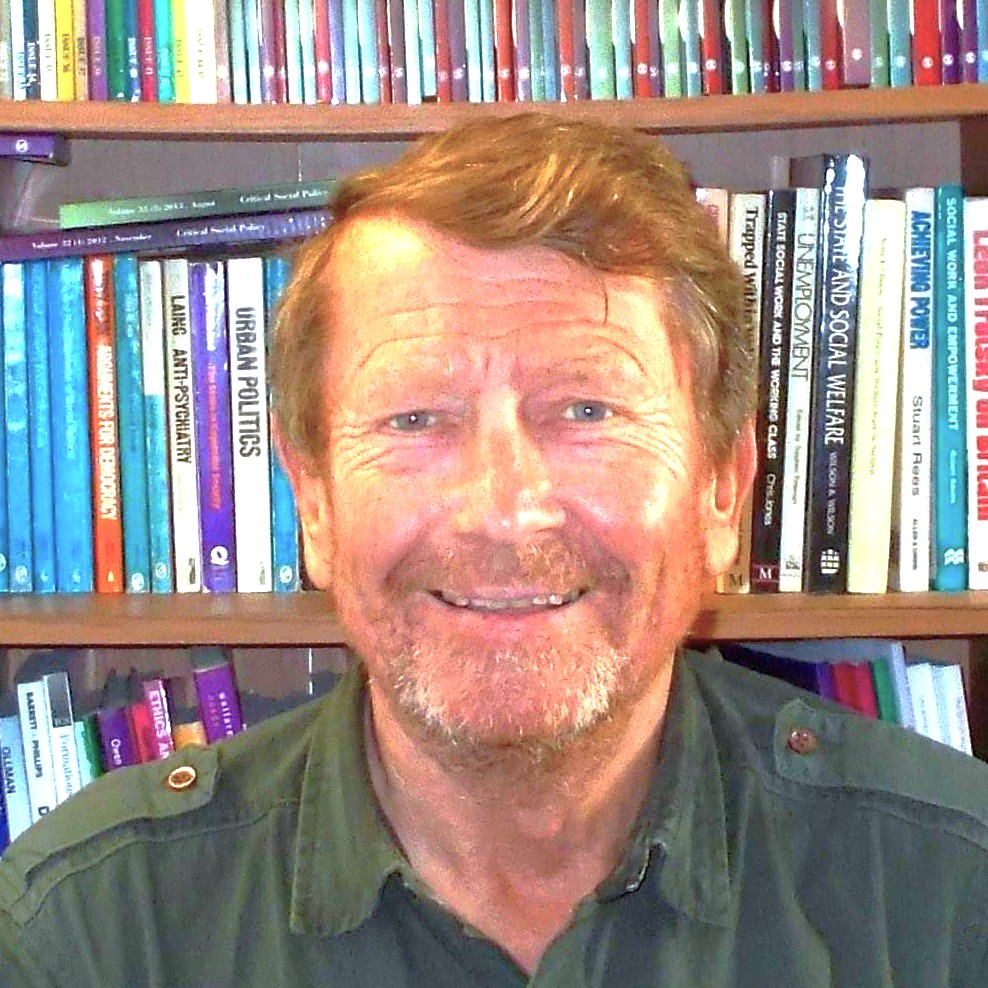Dr. Steve Rogowski, former social worker, independent scholar and author speaks to Kingston College HNC and HND Social & Community Work (Children, Young People and Families) students about this vital profession.
What important reminders do you have for student social workers in an era of dangerous instability caused by such as neoliberalism?
We live in uncertain and in many ways dangerous times, causing insecurity and vulnerability for many in society. This in turn means that there will be ever more need for social workers, not least because they deal with people in difficulty who are, in effect, among the casualties of the societal system we inhabit.
What contribution does social work offer to the community or society at a time of social division?
Social work has the potential to offer help and support to all those facing problems in current society. This involves working with individuals, groups and communities using casework, group work and community work methods. However, and importantly, although this involves dealing with individual problems and difficulties, this should not neglect the need for critical social work (CSW). CSW refers to practice, policy and research which draws on critical theory and involves understanding, critiquing and transforming the profession of social work and the unjust nature of society. It can be traced back to the 1970s and the emergence of a progressive political stance particularly in relation to radical social work which sees oppression in terms of social and economic structures rather than blaming social problems on afflicted individuals. And while critical social work includes a range of approaches, they all challenge the assumptions upon which societies and welfare practices have been organised over subsequent decades, namely the global neoliberal consensus and the belief that the free market is the best way to achieve humankind’s well-being. To counter all this, there is the need for structural change addressing issues in relation to class, gender and ‘race’, as well as all forms of oppression and intersectional issues more generally.
What is it that still energises you to be involved in social, group and community work?
It is important to recognise that although I practiced as a social worker (mainly with children and families) over five decades in the UK, for the last decade I have been retired. However, my interest in the profession has not waned and I continue to take a keen interest which involves writing and commentating on social work as well as such as social policy issues more generally.
What are the main challenges to social workers nowadays?
As far as the UK is concerned it must be remembered that professional social work became established at the height of the social democratic consensus of the initial post war years. State intervention was seen as the way forward, this included nationalisation of major industries and eliminating the causes of social inequities by creating the welfare state. Importantly, there was the creation of local authority Social Services Departments staffed by social workers in 1971. However, the election of Margaret Thatcher as prime minister in 1979 changed things as the belief in less state intervention and encouraging free markets came to dominate even though this leads to vast increases in inequality and insecurity in the lives of many. Thus, during the 1980s neoliberalism, the belief in the supremacy of free markets in achieving human well-being, came to the fore. Notions of self-help, individual responsibility, ‘choice’ and freedom came to dominate which led to the dismantling of the welfare state with what remains of it often being controlling and punitive. As for social work, new public management was introduced to control what practitioners do and how, this resulting in the focus on completing bureaucracy speedily to ration resources and assess/manage risk.


